This Hydrogen-Powered Toyota Big Rig Might Be Super Efficient, But It Also Packs Incredible Power
1325 lb-ft of torque, to be exact.
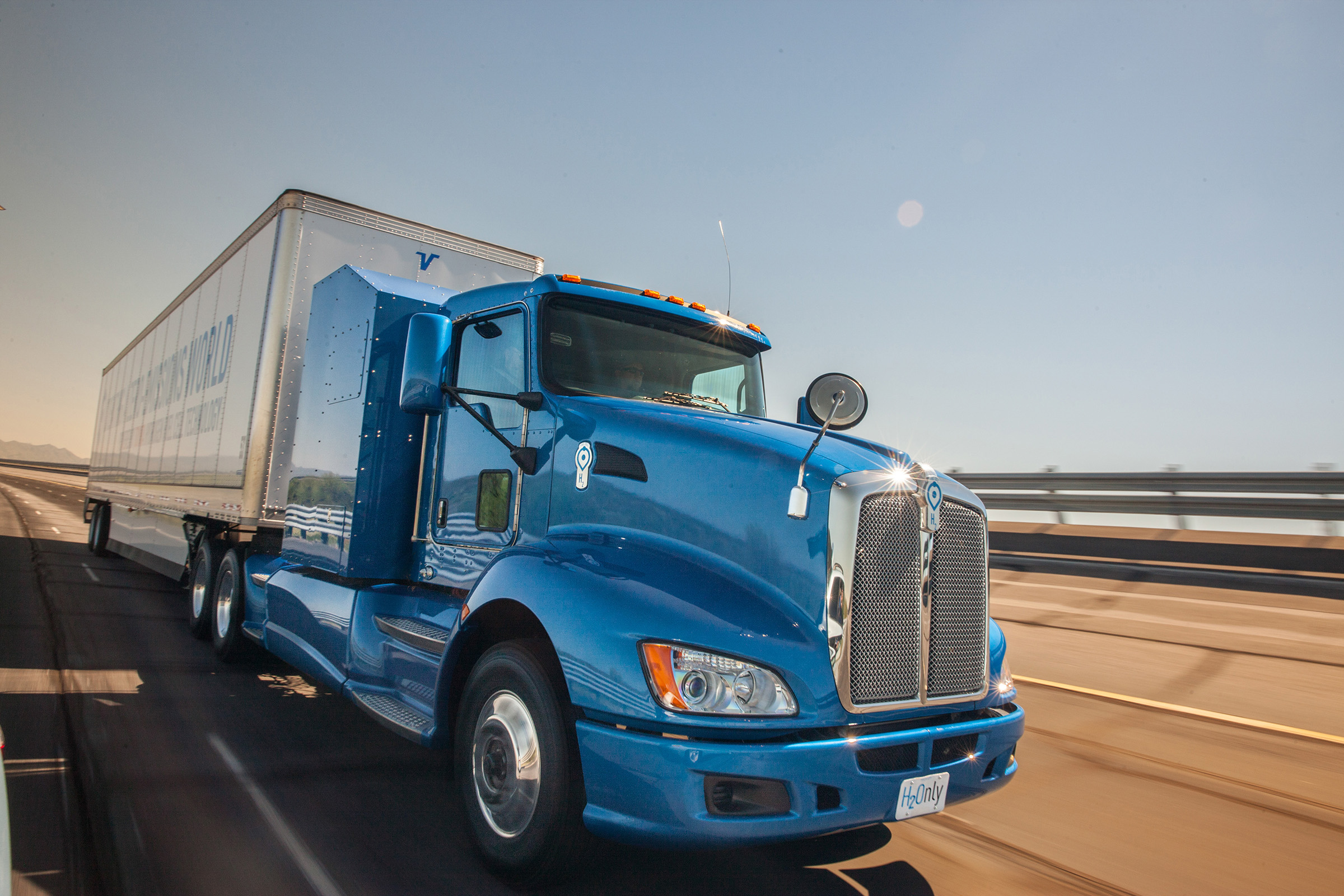
The former U.S.S. Enterprise aircraft carrier (decommissioned Feb 3, after 55 years of service) was America’s first nuclear-powered supercarrier. At the time of its design, the nation had experience only with the small reactors developed for submarines, so the expedient solution was to install eight of those to power the “Big E.”
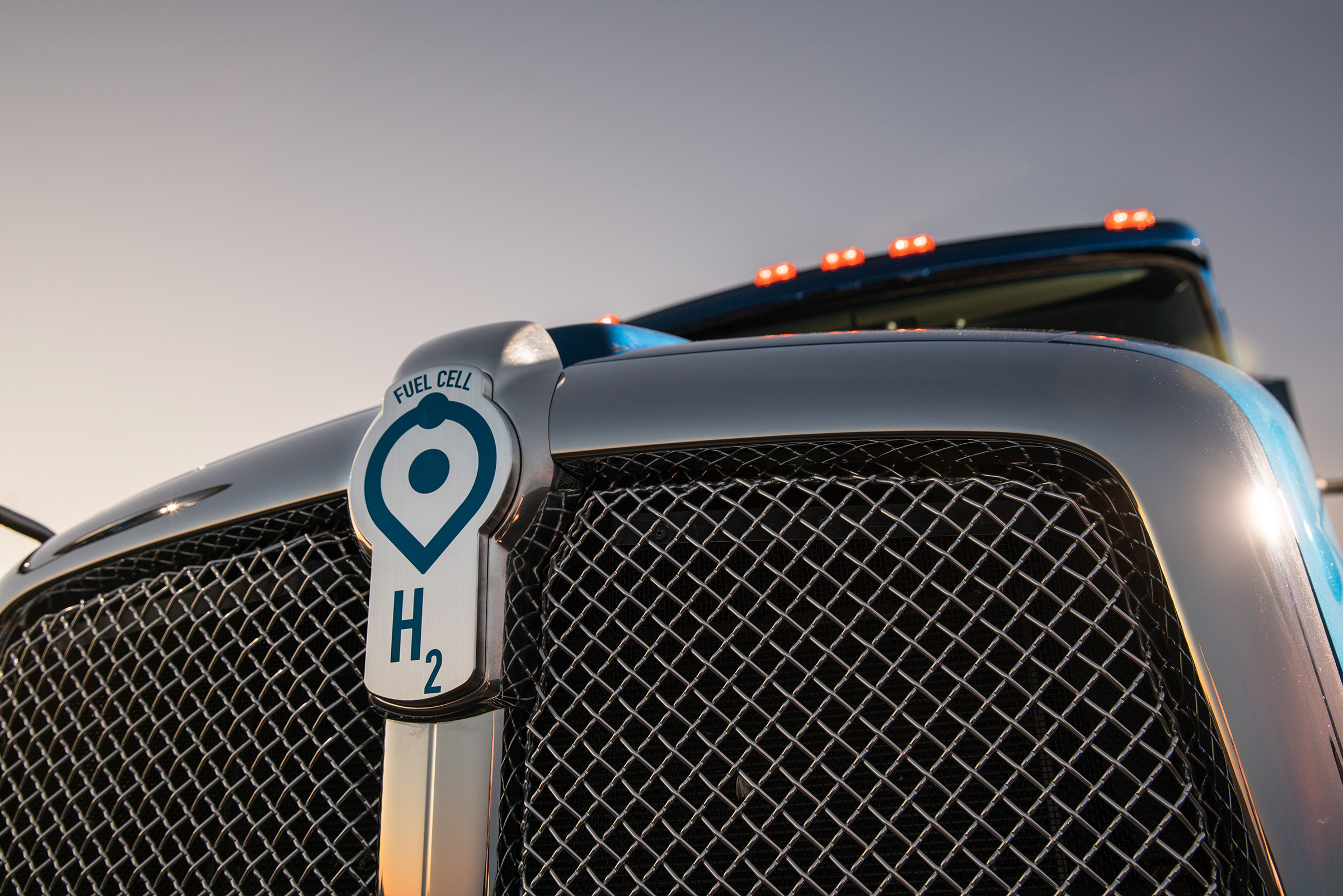
Toyota is thinking along the same lines with its plans for using hydrogen fuel cells to power massive Class 8 highway tractors, which are the lifeblood of commerce in America. Fuel cells will make these trucks infinitely cleaner as well as cheaper and more efficient to operate, but so far the commercially available fuel cells have been in small economy cars like Toyota’s Mirai.
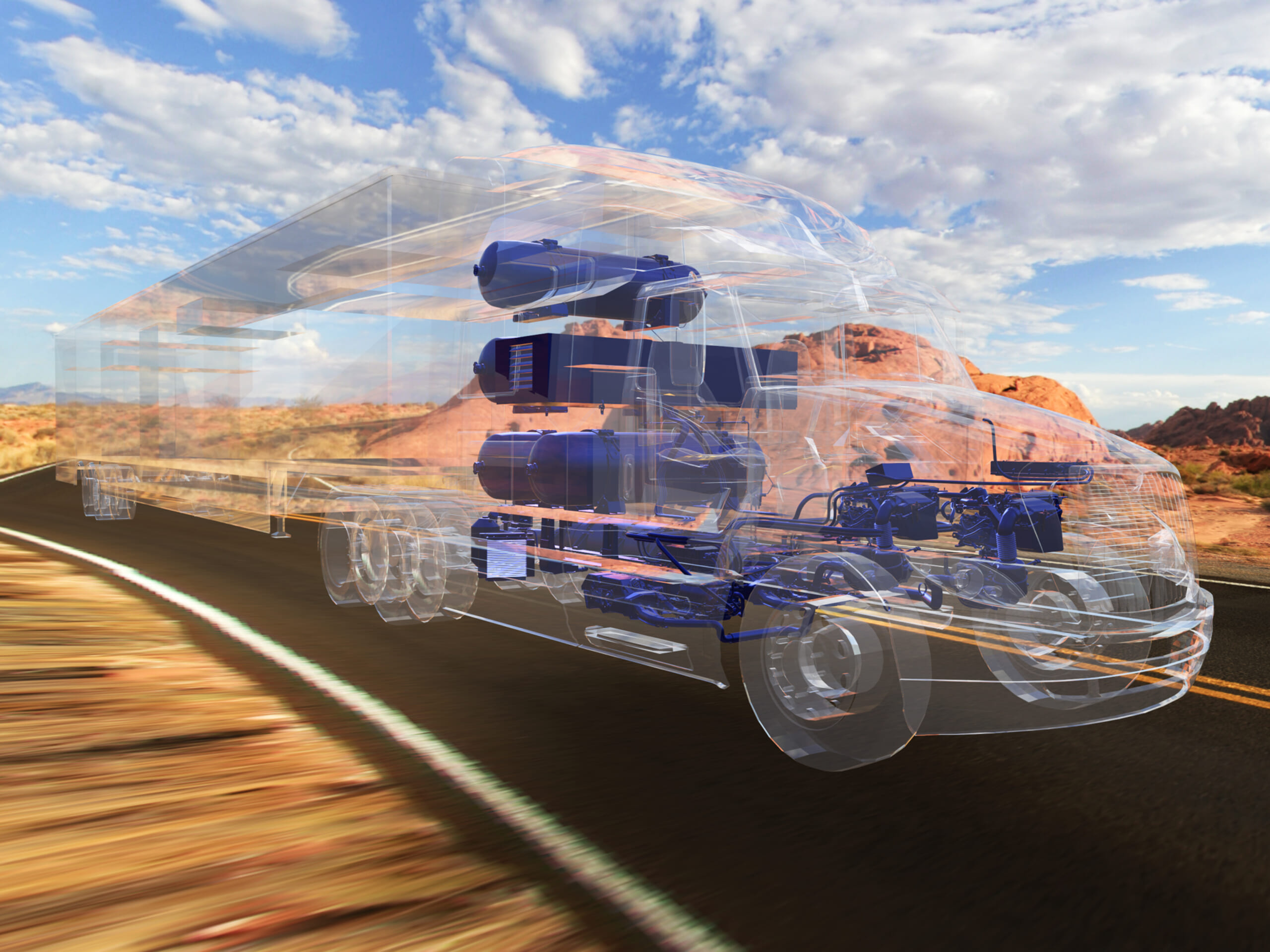
So Toyota put two of those fuel cells into the Project Portal big rig.
This high-tech truck generates more than 670 horsepower and 1325 pound-feet of torque from its two Mirai fuel cell stacks and a 12 kilowatt-hour battery. That battery is about half the size you’d find in a battery electric economy car like the Nissan Leaf, for example, because it only serves as an aid to the fuel cells’ power output and not as the main source of energy.
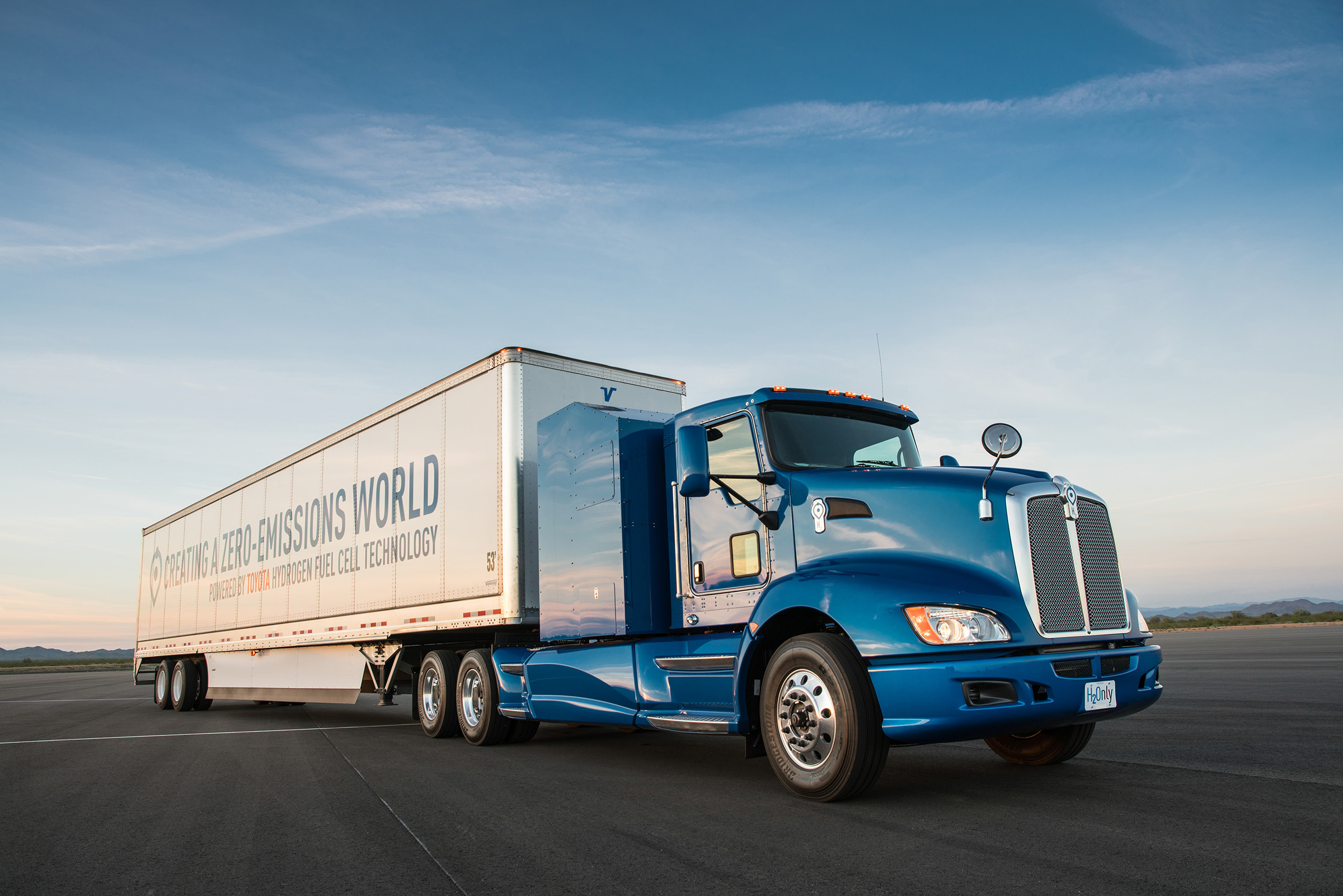
With its fully loaded trailer, the Project Portal weighs 80,000 lbs., and its estimated driving range is more than 200 miles per fill up with hydrogen. Unlike battery electric vehicles, hydrogen fuel cells can refuel quickly, so there is no waiting around for batteries to recharge.
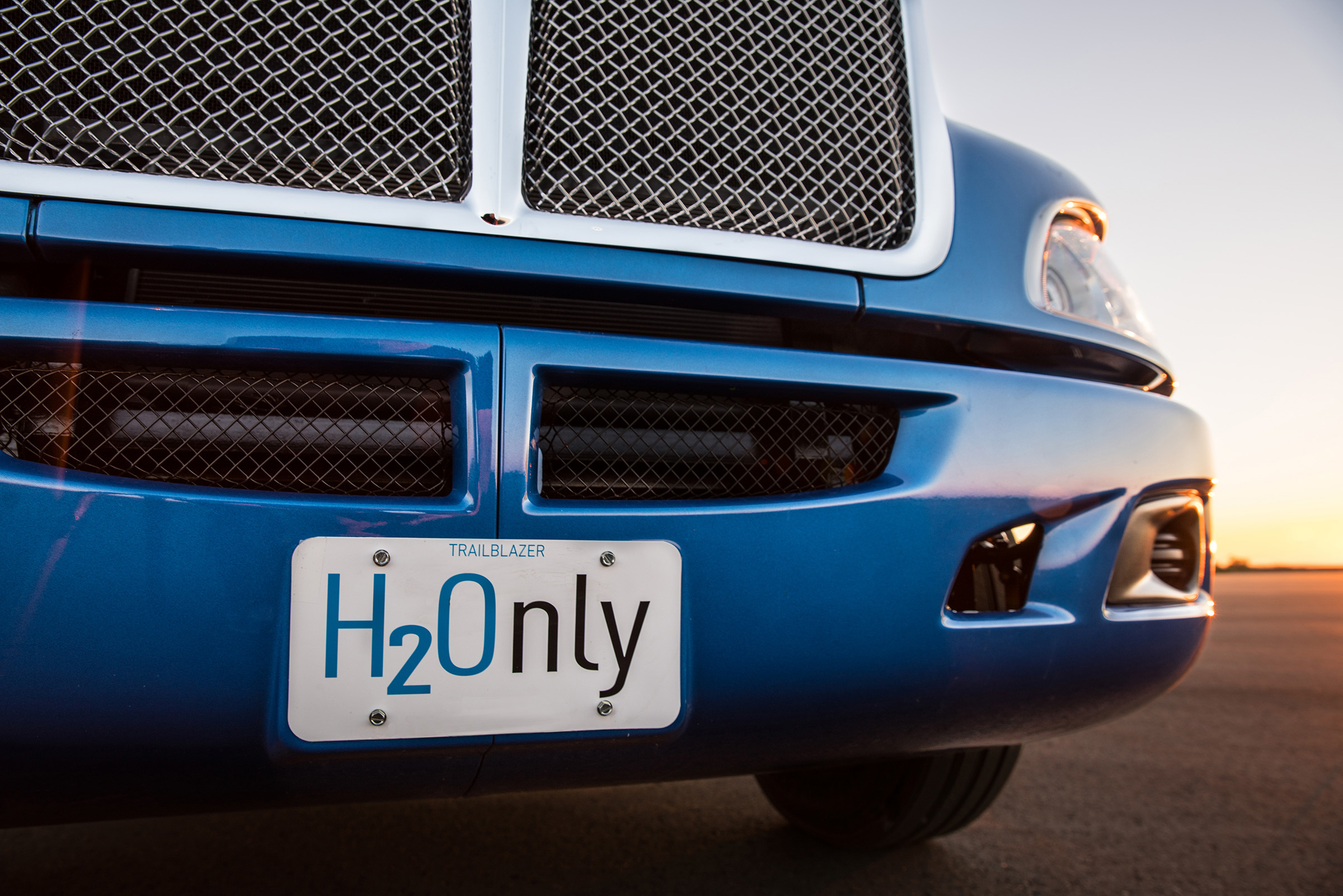
“Toyota believes that hydrogen fuel cell technology has tremendous potential to become the powertrain of the future,” said Toyota of North America executive vice president Bob Carter. “With Project Portal, we’re proud to help explore the societal benefits of a true zero emission heavy-duty truck platform.”
Electric truck start-up hopeful Nikola also plans to use fuel cells to power its trucks, so now the race has an established contender and a newcomer to compete for the business of truckers. Hopefully they’ll keep the air horns, even though they’re getting rid of the diesel engines and their towering exhaust stacks.






